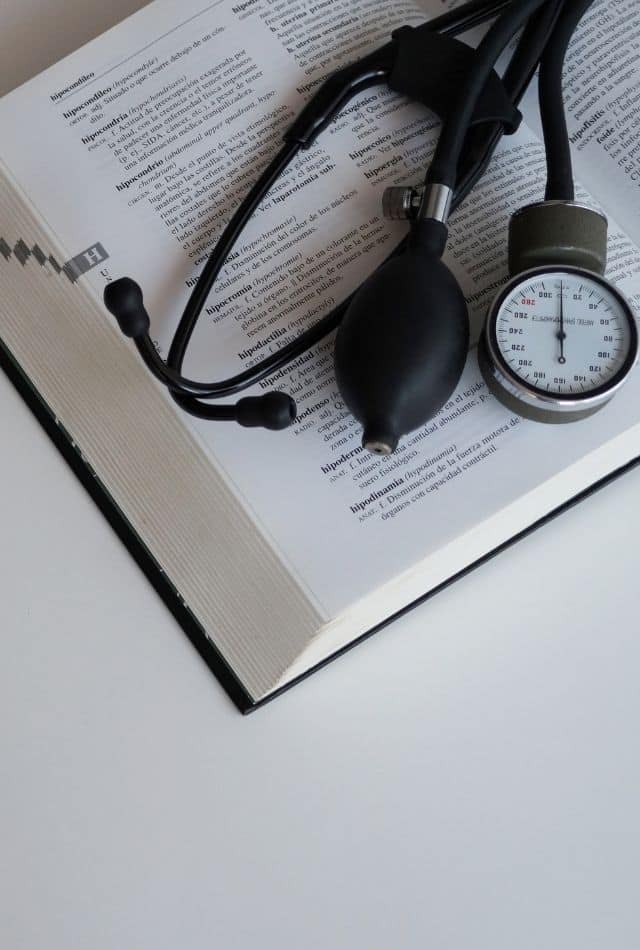Best Books for Pharmacology – Overview
Pharmacology is an essential aspect for people all over the world to live healthier and longer lives. Pharmacology is required in every field of modern medicine and healthcare, right from dentistry to oncology. Pharmacology helped create tablets, antibiotics, and crucial medicines that are used by billions of people all over the world today.
If you are a budding pharmaceutical or a professional, this article will help you to select the best books for pharmacology:

1 – Drug Discovery Series Set: 2010 – 2014 (1st Edition)
The Drug Discovery Series Set has 42 high-quality books. Each book covers an important drug discovery research topic, extending from orphan drugs to process chemistry. These books are edited and written by experienced pharmacology researchers from the industry and academia alike. Case studies also bring to light the different aspects of the drug discovery process.
In this book, you will find an explanation of fundamental science through the most updated discoveries and advanced technologies. This set of pharmacology books is a valuable resource for postgraduate students in medicinal chemistry or biochemistry. This book is also useful for scientists in academia or professionals working in the drug-discovery-related industry.
2 – Comprehensive Medicinal Chemistry II
The Comprehensive Medicinal Chemistry II offers a contemporary and advanced critical analysis and a summary of the recent developments, new trends, and recently discovered areas in medicinal chemistry, as well as their impact on modern medicine.
The book details the emerging trends in medicinal chemistry, such as bio-molecular therapeutics, drug targeting, and the development of chemical biology tools, as well as data collection and analysis methods. It also contains instructions regarding new techniques for synthesizing drug candidates, including developing new scaffolds for drug discovery, green chemistry, and the role of regulatory agencies in drug discovery.
3 – Encyclopedia of Separation Science (1st Edition)
The Encyclopedia of Separation Science (1st Edition) is a comprehensive source on the theory, technique and application of separation science. This book has three different levels of information.
The first volume has Level – 1, which contains a broad overview of the theory of the 12 main categories within separation technologies. Level – 2 contains detailed theoretical and technical descriptions of particular techniques. Level – 3 contains applications of these techniques, besides analytical laboratory applications, from the micro or macro levels. Volume 10 of this book contains the entire index.
4 – Dictionary of Pharmacological Agents
The Dictionary of Pharmacological Agents provides an extensive resource for medicinal and pharmaceutical chemists. It presents concise chemical, physical and bibliographical information on drugs and pharmacological agents. This book contains entries for over 30,000 compounds and has more than 8,200 entries. The book also covers currently marketed drugs, pharmaceutical tools, bio-active natural products, and compounds in the final stages of their trial.
In this book, you will find extensive detail on entry names, synonyms (showing generic names, trade names, and company codes), precise diagrams showing stereo-chemistry, approved names, trade names, hazard and toxicity data, dissociation constant, therapeutic uses, as well as patenting company, marketing, and development status, along with the mechanism of action and much more.
5 – Comprehensive Pharmacology (1st Edition)
Comprehensive Pharmacology (1st Edition) is a 7-volume set organized into 12 different sections. This book explores therapeutic areas through 320 extensive articles and 6,800 pages of important findings. The sections contain extremely detailed coverage of information that leading experts have reviewed in pharmacology. This book offers readers an in-depth and easy-to-access reference on all aspects of pharmacology research focused on the therapeutic application of drugs, their way of working, and their therapeutic values.
6 – Encyclopedia of Pain (2nd Edition)
The Encyclopedia of Pain (2nd Edition) is a 7-volume set with over 3,000 entries. This book provides readers with a clear, detailed, and updated coverage of the current state of pharmacology research and pain treatment. Additionally, detailed essays describe with in-depth information the aspects of nociception and pain, such as causes, substrates, symptoms and signs, diagnoses, and treatment.
The book has extremely detailed and colored figures that help to understand this niche topic.
7 – Patty’s Toxicology (6th Edition)
Patty’s Toxicology (6th Edition) features updated sets in well-organized groups and comprehensive data for industrial compounds. These include CAS numbers, exposure limits, physical properties, chemical properties and biological tolerance values for occupational exposures. These make the book a must-read for industrial hygienists and toxicologists alike.
The new edition contains around 40% new authors to bring a new and global perspective to understanding industrial toxicology. It discusses new subjects, including flavorings in the food industry, nano-technology, reactive chemical control and comprehensive chemical policy, pharmaceuticals, and metalworking fluids.
8 – Comprehensive Medicinal Chemistry II (2nd Edition)
Comprehensive Medicinal Chemistry II (2nd Edition) contains updated content and is focused on the recent changes and developments in medicinal chemistry. The book includes information on contemporary medicinal chemistry and drug research. It covers major therapeutic classes and targets, research strategy and organization techniques. It also includes computer-assisted design, ADME and selected case histories.
The book contains extensive coverage of the strategies, principles, technologies and applications of medicinal chemistry in a single work, which makes the book a truly unique and comprehensive guide for medicinal chemistry today.
9 – Comprehensive Toxicology (3rd Edition)
Comprehensive Toxicology (3rd Edition) is a set of 15 volumes. The book has extensive discussions about the chemical effects on human biology. It focuses on teaching the mechanisms through which chemicals induce adverse health effects. The topics are classified according to different organ systems. They have extensive information on the toxicological effects of chemicals on the immune system, cardiovascular system, respiratory system, and other major organ systems.
Conclusion
This is our list of the best pharmacology books. The books featured on our list have been selected based on the extent of information, presentation of said information and ease of learning offered. Our team of experts regards the above-listed books as must-haves for aspiring and professional pharmacologists alike.
See Also
Best Medical Terminology Books
Books for Primary Care Physicians